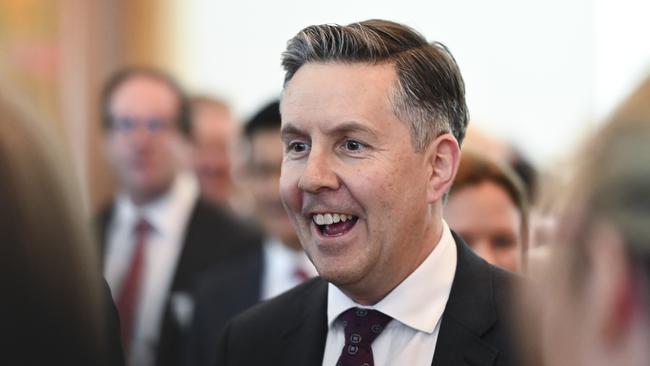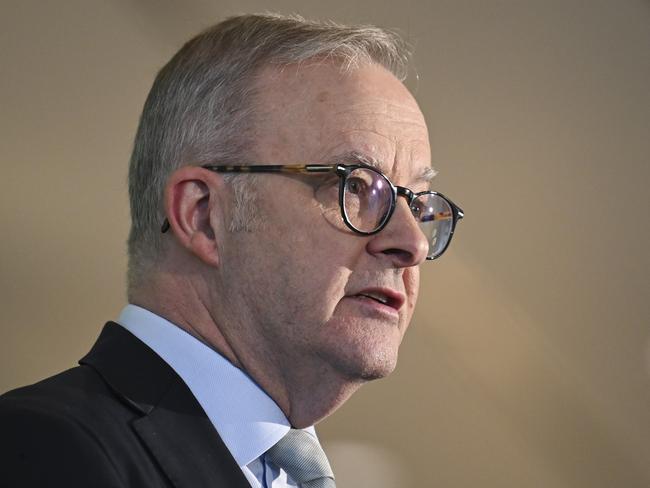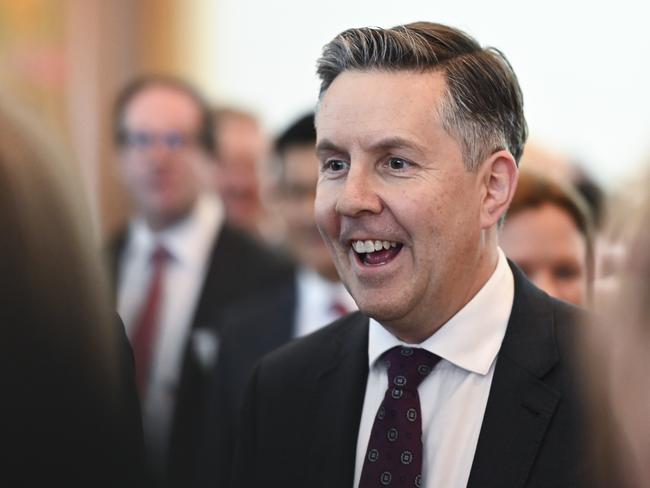Pharmacists will be able to call themselves doctors under Albanese government plan
Pharmacists will be able to call themselves doctors if they opt to take on an additional three to four years study, under a new Federal government pan.

QLD News
Don't miss out on the headlines from QLD News. Followed categories will be added to My News.
Pharmacists will be able to call themselves doctors if they opt to take on an additional three to four years study.
The news was announced by Federal Health Minister Mark Butler on Tuesday night at the Pharmacy Guild dinner in Canberra and is already causing a stir in the healthcare community.
“Education Minister Jason Clare and all his education minister colleagues, have agreed that pharmacists that undertake additional study – a three to four year extended Masters Degree – will be able to use the title “Doctor of Pharmacy”, Mr Butler said.
“I know this has been something your organisation has pushed for, over many years,” he told the gathering of pharmacists.
The Albanese Government is delivering on a commitment the former government agreed to but never implemented.
It is believed 12 universities from across the country are on board.
“With this change, pharmacists will join other health professions recognised with the title “Doctor of” when they finish an extended Masters Degree, including physiotherapists, dentists, optometrists and vets” Minister Butler said.
Guild President Trent Twomey welcomed the establishment of the new Masters of Pharmacy qualification to better prepare graduates for the pharmacy of the future.
The change means graduates of a new Level 9 Extended Masters of Pharmacy degree will earn the title of Doctor of Pharmacy.
Study for the Extended Masters will include the intern year and graduates will be able to participate in the full scope of practice upon their registration.

“It’s an important step forward for future community pharmacists who will soon be able to start their careers with the highest possible qualification” Prof Twomey said.
“It provides recognition for the extended scope of clinical practice being undertaken by pharmacists and will be better for pharmacists, patients and primary healthcare.
“Importantly, the Extended Masters program brings Australia’s registerable pharmacy degree in line with that delivered in comparative countries, making pharmacy a more attractive study and career option for Australian students.”
James Cook University Associate Professor John Smithson said comprehensive training at this high-level prepares graduates for the complexities of modern healthcare, making them practice-ready and capable of contributing effectively to patient care and health outcomes.
“This is a logical and necessary step forward for both the community and the healthcare system. As pharmacists expand their role in response to the needs of patients and the expectations of government, professional recognition becomes a natural outcome.”

Australian Medical Association President Nick Yim told The Courier-Mail that patient safety is paramount and this means ensuring patients can access appropriate and timely treatment from the health practitioner most capable of managing their condition.
“In many cases this goes well beyond prescribing and dispensing medicines. When pharmacists and GPs work collaboratively, we get the best outcomes for patients,” he said.
“We hope this training will encourage more collaborative models rather than the ongoing use of siloed approaches, like what we’re currently seeing with the pharmacy prescribing pilots.
“We have confidence in our regulators that they will provide a framework that puts patient safety centre front.”
More to come.



